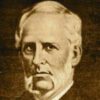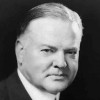If it were enough, to repent the last Day of thy Life; yet how canst thou be sure to do that; unless thou doest it this very Day? Since this Day may be (for ought thou knowest) thy last.
Thomas Fuller (1654-1734) English physician, preacher, aphorist, writer
Introductio ad Prudentiam, Vol. 2, # 2305 (1727)
(Source)
Quotations about:
repentance
Note not all quotations have been tagged, so Search may find additional quotes on this topic.
In the meantime the older son was out in the field. On his way back, when he came close to the house, he heard the music and dancing. So he called one of the servants and asked him, “What’s going on?”
“Your brother has come back home,” the servant answered, ‘and your father has killed the prize calf, because he got him back safe and sound.”
The older brother was so angry that he would not go into the house; so his father came out and begged him to come in. But he spoke back to his father, “Look, all these years I have worked for you like a slave, and I have never disobeyed your orders. What have you given me? Not even a goat for me to have a feast with my friends! But this son of yours wasted all your property on prostitutes, and when he comes back home, you kill the prize calf for him!”
“My son,” the father answered, “you are always here with me, and everything I have is yours. But we had to celebrate and be happy, because your brother was dead, but now he is alive; he was lost, but now he has been found.”[Ἦν δὲ ὁ υἱὸς αὐτοῦ ὁ πρεσβύτερος ἐν ἀγρῷ· καὶ ὡς ἐρχόμενος ἤγγισεν τῇ οἰκίᾳ, ἤκουσεν συμφωνίας καὶ χορῶν, καὶ προσκαλεσάμενος ἕνα τῶν παίδων ἐπυνθάνετο τί ἂν εἴη ταῦτα.
ὁ δὲ εἶπεν αὐτῷ ὅτι Ὁ ἀδελφός σου ἥκει, καὶ ἔθυσεν ὁ πατήρ σου τὸν μόσχον τὸν σιτευτόν, ὅτι ὑγιαίνοντα αὐτὸν ἀπέλαβεν.
ὠργίσθη δὲ καὶ οὐκ ἤθελεν εἰσελθεῖν, ὁ δὲ πατὴρ αὐτοῦ ἐξελθὼν παρεκάλει αὐτόν. ὁ δὲ ἀποκριθεὶς εἶπεν τῷ πατρὶ αὐτοῦ, Ἰδοὺ τοσαῦτα ἔτη δουλεύω σοι καὶ οὐδέποτε ἐντολήν σου παρῆλθον, καὶ ἐμοὶ οὐδέποτε ἔδωκας ἔριφον ἵνα μετὰ τῶν φίλων μου εὐφρανθῶ· ὅτε δὲ ὁ υἱός σου οὗτος ὁ καταφαγών σου τὸν βίον μετὰ πορνῶν ἦλθεν, ἔθυσας αὐτῷ τὸν σιτευτὸν μόσχον.
ὁ δὲ εἶπεν αὐτῷ, Τέκνον, σὺ πάντοτε μετ᾽ ἐμοῦ εἶ, καὶ πάντα τὰ ἐμὰ σά ἐστιν· εὐφρανθῆναι δὲ καὶ χαρῆναι ἔδει, ὅτι ὁ ἀδελφός σου οὗτος νεκρὸς ἦν καὶ ἔζησεν, καὶ ἀπολωλὼς καὶ εὑρέθη.]The Bible (The New Testament) (AD 1st - 2nd C) Christian sacred scripture
Luke 15: 25-32, “Parable of the Prodigal Son” (Jesus) [GNT (1992 ed.)]
(Source)
No Synoptic parallels. The conclusion of the Parable of the Prodigal Son, which appears only in Luke.
See Luke 15:7. Also see Lewis (1955) and Ciardi (1972).
(Source (Greek)). Alternate translations:Now his elder son was in the field: and as he came and drew nigh to the house, he heard musick and dancing. And he called one of the servants, and asked what these things meant.
And he said unto him, Thy brother is come; and thy father hath killed the fatted calf, because he hath received him safe and sound.
And he was angry, and would not go in: therefore came his father out, and intreated him. And he answering said to his father, Lo, these many years do I serve thee, neither transgressed I at any time thy commandment: and yet thou never gavest me a kid, that I might make merry with my friends: but as soon as this thy son was come, which hath devoured thy living with harlots, thou hast killed for him the fatted calf.
And he said unto him, Son, thou art ever with me, and all that I have is thine. It was meet that we should make merry, and be glad: for this thy brother was dead, and is alive again; and was lost, and is found.
[KJV (1611)]Now the elder son was out in the fields, and on his way back, as he drew near the house, he could hear music and dancing. Calling one of the servants he asked what it was all about.
"Your brother has come" replied the servant "and your father has killed the calf we had fattened because he has got him back safe and sound."
He was angry then and refused to go in, and his father came out to plead with him; but he answered his father, "Look, all these years I have slaved for you and never once disobeyed your orders, yet you never offered me so much as a kid for me to celebrate with my friends. But, for this son of yours, when he comes back after swallowing up your property -- he and his women -- you kill the calf we had been fattening."
The father said, "My son, you are with me always and all I have is yours. But it was only right we should celebrate and rejoice, because your brother here was dead and has come to life; he was lost and is found."
[JB (1966)]Now the elder son was out in the fields, and on his way back, as he drew near the house, he could hear music and dancing. Calling one of the servants he asked what it was all about.
The servant told him, "Your brother has come, and your father has killed the calf we had been fattening because he has got him back safe and sound."
He was angry then and refused to go in, and his father came out and began to urge him to come in; but he retorted to his father, "All these years I have slaved for you and never once disobeyed any orders of yours, yet you never offered me so much as a kid for me to celebrate with my friends. But, for this son of yours, when he comes back after swallowing up your property -- he and his loose women -- you kill the calf we had been fattening."
The father said, "My son, you are with me always and all I have is yours. But it was only right we should celebrate and rejoice, because your brother here was dead and has come to life; he was lost and is found."
[NJB (1985)]Now his older son was in the field. Coming in from the field, he approached the house and heard music and dancing. He called one of the servants and asked what was going on.
The servant replied, "Your brother has arrived, and your father has slaughtered the fattened calf because he received his son back safe and sound."
Then the older son was furious and didn’t want to enter in, but his father came out and begged him. He answered his father, "Look, I’ve served you all these years, and I never disobeyed your instruction. Yet you’ve never given me as much as a young goat so I could celebrate with my friends. But when this son of yours returned, after gobbling up your estate on prostitutes, you slaughtered the fattened calf for him."
Then his father said, "Son, you are always with me, and everything I have is yours. But we had to celebrate and be glad because this brother of yours was dead and is alive. He was lost and is found."
[CEB (2011)]Now his elder son was in the field, and as he came and approached the house, he heard music and dancing. He called one of the slaves and asked what was going on.
He replied, "Your brother has come, and your father has killed the fatted calf because he has got him back safe and sound."
Then he became angry and refused to go in. His father came out and began to plead with him. But he answered his father, "Listen! For all these years I have been working like a slave for you, and I have never disobeyed your command, yet you have never given me even a young goat so that I might celebrate with my friends. But when this son of yours came back, who has devoured your assets with prostitutes, you killed the fatted calf for him!"
Then the father said to him, "Son, you are always with me, and all that is mine is yours. But we had to celebrate and rejoice, because this brother of yours was dead and has come to life; he was lost and has been found."
[NRSV (2021 ed.)]
Our repentance is not so much regret for the evil we have done, as fear of its consequences to us.
[Notre repentir n’est pas tant un regret du mal que nous avons fait, qu’une crainte de celui qui nous en peut arriver.]
François VI, duc de La Rochefoucauld (1613-1680) French epigrammatist, memoirist, noble
Réflexions ou sentences et maximes morales [Reflections; or Sentences and Moral Maxims], ¶180 (1665-1678) [ed. Gowens (1851), ¶187]
(Source)
Appeared in the 1st edition as:Notre repentir n’est pas une douleur du mal que nous avons fait ; c’est une crainte de celui qui nous en peut arriver.
In the manuscript, it reads:Notre repentir ne vient point du regret de nos actions, mais du dommage qu’elles nous causent.
(Source (French)). Other translations:Our Repentance proceeds not from the remorse coneiv'd at our Actions, but from the prejudice we are apt to receive thereby.
[tr. Davies (1669), ¶35]Our Repentances are generally not so much a Concern and Remorse for the Ills we have done, as a Dread of those we were in danger of suffering.
[tr. Stanhope (1694), ¶181]Repentance is not so much remorse for what we have done, as the fear of consequences.
[pub. Donaldson (1783), ¶384; ed. Lepoittevin-Lacroix (1797), ¶172]Our repentance is not so much sorrow for the ill we have done as fear of the ill that may happen to us.
[tr. Bund/Friswell (1871), ¶180]Repentance is less a sorrow at having sinned than a fear of the possible consequences.
[tr. Heard (1917), ¶184]Repentance is not so much regret for the evil we have done as fear of that which may befall us.
[tr. Stevens (1939), ¶180]Our repentance is less a regret for the evil we have done than a precaution against the evil that may be done to us.
[tr. FitzGibbon (1957), ¶180]Our repentance is less a regret for ills we have caused than a fear of ills we may encounter.
[tr. Kronenberger (1959), ¶180]Repentance is not so much regret for the evil we have done as fear of the evil that may befall us as a result.
[tr. Tancock (1959), ¶180]Our repentance is not so much regret for the evil we have done, as fear of the evil which may yet happen to us in future.
[tr. Whichello (2016) ¶180]
The Time will come when thou shalt desire one Day, or even one Hour to amend in, and I cannot say it will be granted thee.
Thomas Fuller (1654-1734) English physician, preacher, aphorist, writer
Introductio ad Prudentiam, Vol. 2, # 2058 (1727)
(Source)
The most dangerous men we hav in this world are thoze who are alwus repenting ov the sins they hav made up their mind tew commit.
[The most dangerous men we have in this world are those who are always repenting of the sins they have made up their mind to commit.]
Josh Billings (1818-1885) American humorist, aphorist [pseud. of Henry Wheeler Shaw]
Everybody’s Friend, Or; Josh Billing’s Encyclopedia and Proverbial Philosophy of Wit and Humor, ch. 281 “Variety: Bred and Butter” (1874)
(Source)
So up I got in anger,
And took a book I had,
And put a ribbon on my hair
To please a passing lad.
And, “One thing there’s no getting by —
I’ve been a wicked girl.” said I;
“But if I can’t be sorry, why,
I might as well be glad!”Edna St. Vincent Millay (1892-1950) American poet
“The Penitent”, st. 3, A Few Figs from Thistles (1921)
(Source)
He that falls into sin is a man; that grieves at it, is a saint; that boasteth of it, is a devil.
Thomas Fuller (1608-1661) English churchman, historian
The Holy State and the Profane State, Book 3, ch. 3 “Of Self-Praising” (1642)
(Source)
Timely advis’d, the coming Evil shun:
Better not do the Deed, than weep it done.Matthew Prior (1664-1721) English poet and diplomat
“Henry and Emma,” l. 310ff [Henry] (1709)
(Source)
Right actions for the future are the best apologies for wrong ones in the past — the best evidence of regret for them that we can offer, or the world receive.
Tryon Edwards (1809-1894) American theologian, writer, lexicographer
A Dictionary of Thoughts (1908)
(Source)
Often wrongly quoted, "... best apologies for bad actions in the past."
Wash yourselves clean; put your evil doings away from My sight. Cease to do evil; learn to do good. Devote yourselves to justice; aid the wronged. Uphold the rights of the orphan; defend the cause of the widow.
The Bible (The Old Testament) (14th - 2nd C BC) Judeo-Christian sacred scripture [Tanakh, Hebrew Bible], incl. the Apocrypha (Deuterocanonicals)
Isaiah 1:16-17 [JPS (1985)]
(Source)
Alternate translations:Wash you, make you clean; put away the evil of your doings from before mine eyes; cease to do evil; learn to do well; seek judgment, relieve the oppressed, judge the fatherless, plead for the widow.
[KJV (1611)]Wash yourselves, make yourselves clean; Remove the evil of your deeds from My sight. Cease to do evil, learn to do good; seek justice, reprove the ruthless, refend the orphan, plead for the widow.
[NASB (1960)]Wash, make yourselves clean. Take your wrong-doing out of my sight. Cease to do evil. Learn to do good, search for justice, help the oppressed, be just to the orphan, plead for the widow.
[JB (1966)]Wash yourselves clean. Stop all this evil that I see you doing. Yes, stop doing evil and learn to do right. See that justice is done -- help those who are oppressed, give orphans their rights, and defend widows.
[GNT (1976)]Wash yourselves; make yourselves clean; remove the evil of your doings from before my eyes; cease to do evil; learn to do good; seek justice; rescue the oppressed; defend the orphan; plead for the widow.
[NRSV (1989 ed.)]Wash yourselves; make yourselves clean; remove the evil of your deeds from before my eyes; cease to do evil, learn to do good; seek justice, correct oppression; bring justice to the fatherless; plead the widow's cause.
[ESV (2001)]
It may well be that we will have to repent in this generation. Not merely for the vitriolic words and the violent actions of the bad people, but for the appalling silence and indifference of the good people who sit around and say, “Wait on time.”
The man of business goes on Sunday to the church with the regularity of the village blacksmith, there to renounce and abjure before his God the line of conduct which he intends to pursue with all his might during the following week.
George Bernard Shaw (1856-1950) Irish playwright and critic
Fabian Essays in Socialism, “The Basis of Socialism: Economic” (1889)
(Source)
King David and King Solomon
Led merry merry lives,
With many, many lady friends,
And many many wives;
But when old age crept over them —
With many, many qualms! —
King Solomon wrote the Proverbs
And King David wrote the Psalms.
Jesus also told this parable to people who were sure of their own goodness and despised everybody else. “Once there were two men who went up to the Temple to pray: one was a Pharisee, the other a tax collector.
“The Pharisee stood apart by himself and prayed, ‘I thank you, God, that I am not greedy, dishonest, or an adulterer, like everybody else. I thank you that I am not like that tax collector over there. I fast two days a week, and I give you one tenth of all my income.’
“But the tax collector stood at a distance and would not even raise his face to heaven, but beat on his breast and said, ‘God, have pity on me, a sinner!’
“I tell you,” said Jesus, “the tax collector, and not the Pharisee, was in the right with God when he went home. For those who make themselves great will be humbled, and those who humble themselves will be made great.”[Εἶπεν δὲ καὶ πρός τινας τοὺς πεποιθότας ἐφ᾽ ἑαυτοῖς ὅτι εἰσὶν δίκαιοι καὶ ἐξουθενοῦντας τοὺς λοιποὺς τὴν παραβολὴν ταύτην· Ἄνθρωποι δύο ἀνέβησαν εἰς τὸ ἱερὸν προσεύξασθαι, ὁ εἷς Φαρισαῖος καὶ ὁ ἕτερος τελώνης.
ὁ Φαρισαῖος σταθεὶς πρὸς ἑαυτὸν ταῦτα προσηύχετο, Ὁ θεός, εὐχαριστῶ σοι ὅτι οὐκ εἰμὶ ὥσπερ οἱ λοιποὶ τῶν ἀνθρώπων, ἅρπαγες, ἄδικοι, μοιχοί, ἢ καὶ ὡς οὗτος ὁ τελώνης· νηστεύω δὶς τοῦ σαββάτου, ἀποδεκατῶ πάντα ὅσα κτῶμαι.
ὁ δὲ τελώνης μακρόθεν ἑστὼς οὐκ ἤθελεν οὐδὲ τοὺς ὀφθαλμοὺς ἐπᾶραι εἰς τὸν οὐρανόν, ἀλλ᾽ ἔτυπτεν τὸ στῆθος αὐτοῦ λέγων, Ὁ θεός, ἱλάσθητί μοι τῷ ἁμαρτωλῷ.
λέγω ὑμῖν, κατέβη οὗτος δεδικαιωμένος εἰς τὸν οἶκον αὐτοῦ παρ᾽ ἐκεῖνον· ὅτι πᾶς ὁ ὑψῶν ἑαυτὸν ταπεινωθήσεται, ὁ δὲ ταπεινῶν ἑαυτὸν ὑψωθήσεται.]The Bible (The New Testament) (AD 1st - 2nd C) Christian sacred scripture
Luke 18: 9-14, “The Parable of the Pharisee and the Tax Collector” [GNT (1992 ed.)]
(Source)
No Synoptic parallels.
(Source (Greek)). Alternate translations:And he spake this parable unto certain which trusted in themselves that they were righteous, and despised others: Two men went up into the temple to pray; the one a Pharisee, and the other a publican.
The Pharisee stood and prayed thus with himself, God, I thank thee, that I am not as other men are, extortioners, unjust, adulterers, or even as this publican. I fast twice in the week, I give tithes of all that I possess.
And the publican, standing afar off, would not lift up so much as his eyes unto heaven, but smote upon his breast, saying, God be merciful to me a sinner.
I tell you, this man went down to his house justified rather than the other: for every one that exalteth himself shall be abased; and he that humbleth himself shall be exalted.
[KJV (1611)]He spoke the following parable to some people who prided themselves on being virtuous and despised everyone else, "Two men went up to the Temple to pray, one a Pharisee, the other a tax collector.
"The Pharisee stood there and said this prayer to himself, 'I thank you, God, that I am not grasping, unjust, adulterous like the rest of mankind, and particularly that I am not like this tax collector here. I fast twice a week; I pay tithes on all I get.'
"The tax collector stood some distance away, not daring even to raise his eyes to heaven; but he beat his breast and said, 'God, be merciful to me, a sinner.'
"This man, I tell you, went home again at rights with God; the other did not. For everyone who exalts himself will be humbled, but the man who humbles himself will be exalted."
[JB (1966)]He spoke the following parable to some people who prided themselves on being upright and despised everyone else, "Two men went up to the Temple to pray, one a Pharisee, the other a tax collector.
"The Pharisee stood there and said this prayer to himself, 'I thank you, God, that I am not grasping, unjust, adulterous like everyone else, and particularly that I am not like this tax collector here. I fast twice a week; I pay tithes on all I get.'
"The tax collector stood some distance away, not daring even to raise his eyes to heaven; but he beat his breast and said, 'God, be merciful to me, a sinner.'
"This man, I tell you, went home again justified; the other did not. For everyone who raises himself up will be humbled, but anyone who humbles himself will be raised up."
[NJB (1985)]Jesus told this parable to certain people who had convinced themselves that they were righteous and who looked on everyone else with disgust: “Two people went up to the temple to pray. One was a Pharisee and the other a tax collector.
"The Pharisee stood and prayed about himself with these words, ‘God, I thank you that I’m not like everyone else—crooks, evildoers, adulterers—or even like this tax collector. I fast twice a week. I give a tenth of everything I receive.’
"But the tax collector stood at a distance. He wouldn’t even lift his eyes to look toward heaven. Rather, he struck his chest and said, ‘God, show mercy to me, a sinner.’
"I tell you, this person went down to his home justified rather than the Pharisee. All who lift themselves up will be brought low, and those who make themselves low will be lifted up.”
[CEB (2011)]He also told this parable to some who trusted in themselves that they were righteous and regarded others with contempt: “Two men went up to the temple to pray, one a Pharisee and the other a tax collector.
"The Pharisee, standing by himself, was praying thus, ‘God, I thank you that I am not like other people: thieves, rogues, adulterers, or even like this tax collector. I fast twice a week; I give a tenth of all my income.’
"But the tax collector, standing far off, would not even lift up his eyes to heaven but was beating his breast and saying, ‘God, be merciful to me, a sinner!’
"I tell you, this man went down to his home justified rather than the other, for all who exalt themselves will be humbled, but all who humble themselves will be exalted.”
[NRSV (2021 ed.)]
Let us have wine and women, mirth and laughter,
Sermons and soda water the day after.
If you derive pleasure from the good which you have performed and you grieve for the evil which you have committed, you are a true believer.
HAL: Presume not that I am the thing I was;
For God doth know — so shall the world perceive —
That I have turn’d away my former self.William Shakespeare (1564-1616) English dramatist and poet
Henry IV, Part 2, Act 5, sc. 5, l. 60ff (5.5.60-62) (c. 1598)
(Source)
Have a Care of Passion. Anger begins with Folly, and ends with Repentance.
Just so, I tell you, there will be more joy in heaven over one sinner who repents than over ninety-nine righteous persons who need no repentance.
[λέγω ὑμῖν ὅτι οὕτως χαρὰ ἐν τῷ οὐρανῷ ἔσται ἐπὶ ἑνὶ ἁμαρτωλῷ μετανοοῦντι ἢ ἐπὶ ἐνενήκοντα ἐννέα δικαίοις οἵτινες οὐ χρείαν ἔχουσιν μετανοίας.]
The Bible (The New Testament) (AD 1st - 2nd C) Christian sacred scripture
Luke 15: 7 (Jesus) [NRSV (2021 ed.)]
(Source)
This section of Luke (Luke 15:1-10) is paralleled in Matthew 18:10-14, though this specific phrase does not occur there.
(Source (Greek)). Alternate translations:I say unto you, that likewise joy shall be in heaven over one sinner that repenteth, more than over ninety and nine just persons, which need no repentance.
[KJV (1611)]In the same way, I tell you, there will be more rejoicing in heaven over one repentant sinner than over ninety-nine virtuous men who have no need of repentance.
[JB (1966)]In the same way, I tell you, there will be more rejoicing in heaven over one sinner repenting than over ninety-nine upright people who have no need of repentance.
[NJB (1985)]In the same way, I tell you, there will be more joy in heaven over one sinner who repents than over ninety-nine respectable people who do not need to repent.
[GNT (1992 ed.)]In the same way, I tell you, there will be more joy in heaven over one sinner who changes both heart and life than over ninety-nine righteous people who have no need to change their hearts and lives.
[CEB (2011)]
Repentanse should be the effekt ov love — not fear.
[Repentance should be the effect of love — not fear.]
Josh Billings (1818-1885) American humorist, aphorist [pseud. of Henry Wheeler Shaw]
Everybody’s Friend, Or; Josh Billing’s Encyclopedia and Proverbial Philosophy of Wit and Humor, ch. 155 “Affurisms: Ink Lings” (1874)
(Source)
The best way I kno ov tew repent of enny thing is tew do better next time.
[The best way I know of to repent of anything is to do better next time.]
Josh Billings (1818-1885) American humorist, aphorist [pseud. of Henry Wheeler Shaw]
Everybody’s Friend, Or; Josh Billing’s Encyclopedia and Proverbial Philosophy of Wit and Humor, ch. 139 “Affurisms: Hooks & Eyes” (1874)
(Source)
Variant:The best way I know to REPENT of anything is not to do it again and to do better next time.
[H. Montague, ed., Wit and Wisdom of Josh Billings (1913)]
In repenting ov sins, men are apt tew repent ov thoze they hain’t got, and overlook those they hav.
[In repenting of sins, men are apt to repent of those they haven’t got, and overlook those they have.]
Josh Billings (1818-1885) American humorist, aphorist [pseud. of Henry Wheeler Shaw]
Everybody’s Friend, Or; Josh Billing’s Encyclopedia and Proverbial Philosophy of Wit and Humor, ch. 155 “Affurisms: Ink Lings” (1874)
(Source)
The wonderful thing about God’s love is that maybe we are going to be surprised at the people we find in Heaven that we didn’t expect, and possibly we’ll be surprised at those we’d thought would be there and aren’t. God has a particularly soft spot for sinners. Remember, Jesus says there is greater joy in heaven over one sinner who repents than over ninety-nine needing no repentance. Ultimately it all hinges on one thing: our response to the divine invitation. There is hope for us all. God’s standards are quite low.
Desmond Tutu (1931-2021) South African cleric, Anglican Archbishop of Cape Town, Nobel Laureate
Interview with Gyles Brandreth, Sunday Times (15 Apr 2001)
(Source)
Often paraphrased (possibly the version printed in the Sunday Times): "We may be surprised at the people we find in heaven. God has a soft spot for sinners. His standards are quite low."
In the Middle Ages it was the fashion to wear hair shirts to remind one’s self of trouble and sin. Many years ago I concluded that a few hair shirts were part of the mental wardrobe of every man. The President differs only from other men in that he has a more extensive wardrobe.
If thou confesseth thy Sins and amendest not, thou mocketh God.
Thomas Fuller (1654-1734) English physician, preacher, aphorist, writer
Introductio ad Prudentiam, Vol. 1, # 661 (1725)
(Source)
For the wicked are full of regrets.
[μεταμελείας γὰρ οἱ φαῦλοι γέμουσιν.]
Aristotle (384-322 BC) Greek philosopher
Nicomachean Ethics [Ἠθικὰ Νικομάχεια], Book 9, ch. 4 (9.4.10) / 1166b.24-25 (c. 325 BC) [tr. Welldon (1892)]
(Source)
(Source (Greek)). Alternate translations:For the wicked are full of remorse.
[tr. Chase (1847)]Whence it is that the wicked are ever full of repentance.
[tr. Williams (1869)]For those who are not good are full of remorse.
[tr. Peters (1893)]For bad men are laden with repentance.
[tr. Ross (1908)]The bad are always changing their minds.
[tr. Rackham (1934)]For base people are full of regret.
[tr. Reeve (1948)]For bad men are full of regrets.
[tr. Apostle (1975)]For bad men are full of regrets.
[tr. Thomson/Tredennick (1976)]For base people are full of regret.
[tr. Irwin/Fine (1995)]For bad people are full of regrets.
[tr. Crisp (2000)]For base people teem with regret.
[tr. Bartlett/Collins (2011)]
It may well be that the greatest tragedy of this period of social transition is not the glaring noisiness of the bad people, but the appalling silence of the good people. It may be that our generation will have repent not only for the diabolical actions and vitriolic words of the children of darkness, but also for the crippling fears and tragic apathy of the children of light.
Martin Luther King, Jr. (1929-1968) American clergyman, civil rights leader, social activist, preacher
“The Christian Way of Life in Human Relations,” speech, General Assembly fo the National Council of Churches, St Louis (4 Dec 1957)
(Source)
Often paraphrased: "We will have to repent in this generation not merely for the hateful words and actions of the bad people but for the appalling silence of the good people." See also here.
God has promised forgiveness to your repentance, but He has not promised tomorrow to your procrastination.
Augustine of Hippo (354-430) Christian church father, philosopher, saint [b. Aurelius Augustinus]
(Paraphrase)
This appears to be a heavy paraphrase from Sermon 40.5-6 [tr. Edmund Hill]:"I'm only asking," he says, "to be allowed a little more time." Why? "Because God has promised me pardon." But no one has promised you that you are going to be alive tomorrow. Or else, just as you have read in the prophet, the gospel, the apostle, that when you have turned back to him God will blot out all your iniquities, read out to me where a tomorrow is promised you, and then live in an evil way tomorrow.
For more discussion, see:
O my son!
These are no trifles! Think: all men make mistakes,
But a good man yields when he knows his course is wrong,
And repairs the evil. The only crime is pride.Sophocles (496-406 BC) Greek tragic playwright
Antigone, l. 1022ff [Tiresias] (441 BC) [tr. Fitts/Fitzgerald (1939), ll. 803ff]
(Source)
Alt. trans.:Then take these things to heart, my son: for error
Is as the universal lot of man;
But whenso'er he errs, that man no longer
Is witless or unblessed, who, having fallen
Into misfortune, seeks to mend his ways
And is not obstinate: the stiffneckt temper
Must oft plead guilty to the charge of folly.
[tr. Donaldson (1848)]Now, then, my son, take thought. A man may err;
But he is not insensate or foredoomed
To ruin, who, when he hath lapsed to evil,
Stands not inflexible, but heals the harm.
The obstinate man still earns the name of fool.
[tr. Campbell (1873)]O ponder this, my son. To err is common
To all men, but the man who having erred
Hugs not his errors, but repents and seeks
The cure, is not a wastrel nor unwise.
No fool, the saw goes, like the obstinate fool.
[tr. Storr (1859)]Think, therefore, on these things, my son. All men are liable to err. But when an error is made, that man is no longer unwise or unblessed who heals the evil into which he has fallen and does not remain stubborn. Self-will, we know, invites the charge of foolishness.
[tr. Jebb (1891)]Consider this, my son! and, O remember,
To err is human; 'tis the common lot
Of frail mortality; and he alone
Is wise and happy, who, when ills are done,
Persists not, but would heal the wound he made.
[tr. Werner (1892)]Think, then, on these things, my son. All men are liable to err; but when an error hath been made, that man is no longer witless or unblest who heals the ill into which he hath fallen, and remains not stubborn. Self-will, we know, incurs the charge of folly.
[tr. Jebb (1917)]Mark this, my son: all men fall into sin.
But sinning, he is not forever lost
Hapless and helpless, who can make amends
And has not set his face against repentance.
Only a fool is governed by self-will.
[tr. Watling (1939)]Think of these things, my son. All men may err
but error once committed, he's no fool
nor yet unfortunate, who gives up his stiffness
ad cures the trouble he has fallen in.
Stubbornness and stupidity are twins.
[tr. Wyckoff (1954)]Be warned, my son, No man alive is free
From error, but the wise and prudent man
When he has fallen into evil courses
Does not persist, but tries to find amendment ....
[tr. Kitto (1962)]Take these things to heart, my son, I warn you.
All men make mistakes, it is only human.
But once the wrong is done, a man
can turn his back on folly, misfortune too,
if he tries to make amends, however low he's fallen,
and stops his bullnecked ways. Stubbornness
brands you for stupidity -- pride is a crime
[tr. Fagles (1982), l. 1131ff]Therefore, think about this, child. For men,
all of them, it is common to make mistakes.
Whenever he does make a mistake, that man is still not
foolish or unhappy who, fallen into evil,
applies a remedy and does not become immovable.
Stubborn self-will incurs a charge of stupidity.
[tr. Tyrell/Bennett (2002)]Understand this: All men make mistakes. But when they do, it would be a wise and well acting man who corrected that mistake and moved on rather than stayed there stubbornly and unrepentant. The stubborn man is rewarded with more errors.
[tr. Theodoridis (2004)]Consider this, my son.
All men make mistakes -- that's not uncommon.
But when they do, they’re no longer foolish
or subject to bad luck if they try to fix
the evil into which they’ve fallen,
once they give up their intransigence.
Men who put their stubbornness on show
invite accusations of stupidity.
[tr. Johnston (2005), l. 1138ff]Therefore, think on these things, my child; for every human being makes mistakes, but when he has made a mistake, that man is no longer foolish and unhappy who remedies the evil into which he has fallen and is not stubborn. Obstinacy brings the charge of stupidity.
[tr. Thomas (2005)]
























